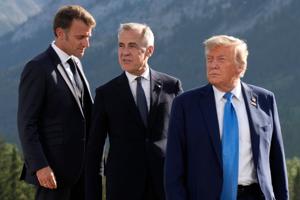The recent implementation of President Donald Trump’s new tariffs regime has ignited a fierce debate, with the White House celebrating it as a testament to his formidable negotiating prowess, even as a chorus of economists and analysts voice significant concerns about its potential adverse effects on the US economy and the financial well-being of its citizens. This significant trade policy shift carries inherent inflation risk and broader economic impact.
Administration officials have meticulously framed the Trump Tariffs rollout as a strategic victory, emphasizing the President’s commitment to rebalancing international trade agreements and protecting domestic industries. This narrative underscores a belief that aggressive trade measures are necessary to safeguard American jobs and reduce trade deficits, positioning the President as a strong advocate for national economic interests.
However, a substantial number of experts caution that these newly imposed taxes on imports could lead to a tangible stunting of economic impact and growth. Their analyses frequently highlight the risk of increased production costs for businesses, which are likely to be passed on to consumers, thereby diminishing purchasing power and overall economic vitality within the US Economy.
A particularly acute concern revolves around the specter of rising inflation risk. Critics argue that by making imported goods more expensive, these Trump Tariffs directly contribute to higher prices for everyday necessities, disproportionately burdening working-class Americans who have less discretionary income to absorb these increased costs. This demographic is seen as particularly vulnerable to the ripple effects of such trade policy.
The global trade stage has reacted with a mix of apprehension and direct counter-measures. Images of French President Emmanuel Macron and Canadian Prime Minister Mark Carney at the G7 Summit, along with South Korean protesters demonstrating against the Trump Tariffs, underscore the international apprehension and resistance. These images highlight the immediate geopolitical and economic consequences of unilateral trade actions and their impact on global trade relations.
Leading up to Friday’s official launch, President Trump orchestrated a flurry of executive actions, including imposing a hefty 50% tariff on goods from Brazil and a 15% tax on American imports originating from South Korea. Additionally, long-standing exemptions for imported goods valued under $800 were terminated, significantly broadening the scope of the new trade policy regime.
High-profile figures within the administration, such as Treasury Secretary Scott Bessent and Health and Human Services Secretary Robert F. Kennedy Jr., have been visible in events where the President promoted his broader economic agenda, including proposals to improve access to medical records. While seemingly separate, these appearances often serve to reinforce the administration’s overarching message of economic reform and strategic policy implementation for the US Economy.
Beyond the economic discourse, the administration’s approach to implementing these Trump Tariffs has sparked considerable debate regarding executive authority. The President is reportedly facing legal challenges and strong opposition from various entities charging that he has overstepped his constitutional bounds in enacting such sweeping trade policies without adequate congressional oversight. This legal dimension adds another layer of complexity to the economic impact of the tariffs saga.






Leave a Reply